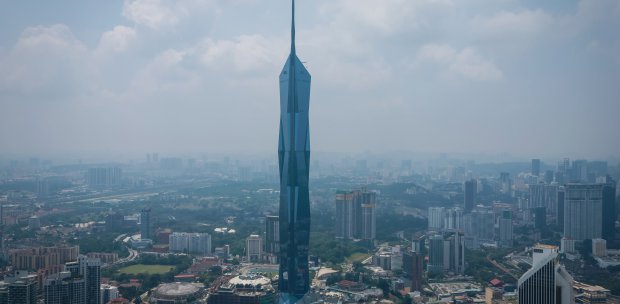THE Roundtable on Sustainable Palm Oil (RSPO) is “more than happy” to collaborate with the world’s top palm oil-producing countries on a standard certification in order to boost the global uptake of sustainable palm oil.
Its chairman Biswaranjan Sen said the national sustainable palm oil standards adopted by both Indonesia and Malaysia, with the backing of the respective governments, would also ensure a faster progress pace (in the adoption of standards).
“We don’t see the RSPO’s CSPO (certified sustainable palm oil) competing with Indonesian Sustainable Palm Oil and Malaysian Palm Oil Certifications Scheme (MPOCS).
“We’ve been working with the Indonesian government on how to makes things happen on a joint certification and we are likewise willing to work with the Malaysian government to work on a collaborative standard and certification to make the industry move forward.”
Sen was speaking at a media briefing in conjunction with the three-day 12th RSPO meeting, here, yesterday.
Last year, 18 per cent of the global production of palm oil was certified as sustainable.
“This is a big step forward and yet there is a lot more to be done to get the balance 82 per cent to the same state.”
The RSPO currently has 1,900 members from more than 70 countries and a US$4 million (RM13.4 million) fund to help smallholders get certification.
Smallholders produce up to 30 per cent of the global palm oil output, and so far, 145,000 smallholders have been certified.
Any confusion and costs with regards to meeting the demands of the three certification could be reduced with the same set of audit for the common areas of interest, said RSPO secretary-general Datuk Darrel Webber.
Sen also expressed concern about the lack of compliance by some RSPO members, especially in submitting the annual communication of progress report to the RSPO secretariat.
“The RSPO is not a club where payment of membership fees is enough to secure a seat at the table and is also not a place for some companies to ‘hide’ behind its membership and burn down forests and displace orang utan.
“While there are those who go way out to meet the requirements, there are also one or two companies which tarnish our image.”
Meanwhile, the United Nations Environment Programme (UNEP) yesterday praised the RSPO, saying the palm oil sector can provide leadership on how to use a global marketplace for a greener and more inclusive economy.
Doug Cress, the programme coordinator of the Great Apes Survival Partnership in Kenya, described it as a model organisation to introduce best practices in the palm oil market in Africa.
The UNEP and the RSPO earlier signed a memorandum of understanding (MoU) to raise the global awareness of sustainable palm oil and generate market demand for the commodity.
Cress expects work on the MoU to commence in the next 12 to 14 months.




